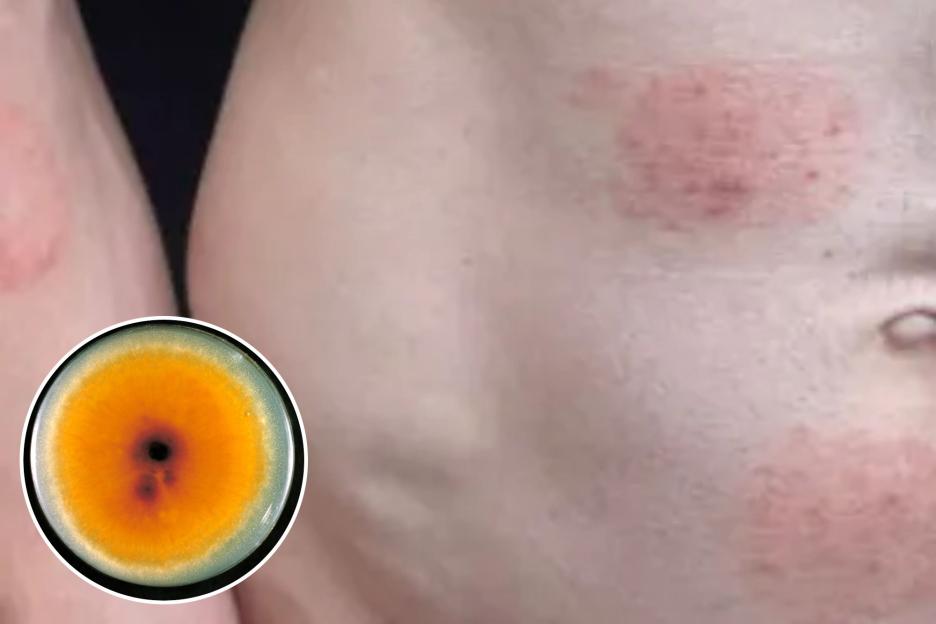A NEW coronavirus may only be “a small step away from spilling over into humans”;, scientists have warned â sparking fears of another pandemic.
Scientists believe the variant, called , may infect a broader range of animals than Covid-19 and may have more potential for jumping between species.
 Dr Michael Letko, a molecular virologist at WSU’s College of Veterinary Medicine, lead the research into the concerning variant
Dr Michael Letko, a molecular virologist at WSU’s College of Veterinary Medicine, lead the research into the concerning variantAmerican scientists fear the virus â found in â may be one small mutation away from also being able to infect humans, which could lead to a widespread outbreak.
The new study, published in Nature Communications , looked at a lesser-known group of coronaviruses called merbecoviruses.
It includes HKU5 and MERS-CoV, which is responsible for the deadly Middle East Respiratory Syndrome.
First noted in 2012, the virus typically spreads from infected camels to humans causes severe respiratory disease, which can be fatal to 34 per cent of its victims.
The research team, which included scientists at State University (WSU), the Institute of Technology and the University of North Carolina, sought to understand how merbecoviruses infiltrate the cells of their hosts.
While most bugs in the group seemed to pose little threat to people, scientists said one subgroup, HKU5, has concerning traits.
Michael Letko, a virologist at WSU’s College of Veterinary , said: “Merbecoviruses â and HKU5 viruses in particular â really hadn’t been looked at much, but our study shows how these viruses infect cells.
“What we also found is HKU5 viruses may be only a small step away from being able to spill over into humans.”;
Like other coronaviruses, merbecoviruses rely on a spike protein to bind to receptors and invade host cells.
Dr Letko’s team used virus-like particles containing the part of the spike protein responsible for binding to receptors and tested their ability to infect cells in their lab.
While most merbecoviruses appeared unlikely to be able to infect humans, HKU5 viruses â which have been found across Asia, , Africa and the Middle East â were shown to use a host receptor known as ACE2, the same used by the SARS-CoV-2 virus that causes Covid-19.
But for now HKU5 viruses can only use the ACE2 gene in bats and can’t deploy it on humans nearly as well.
Examining HKU5 viruses found in Asia â where their host is the Japanese house bat â the researchers demonstrated some mutations in the spike protein that may allow the viruses to bind to ACE2 receptors in other species, including humans.
“These viruses are so closely related to MERS, so we have to be concerned if they ever infect humans,”; Dr Letko said.
“While there’s no evidence they’ve crossed into people yet, the potential is there â and that makes them worth watching.”;
Dr Letko said the study and its methods could be used for future research projects and to help the development of new vaccines and treatments.
It’s not the first time concerns have been raised over HKU5.
Earlier this year, Chinese scientists warned that without another animal in between.
This suggests a higher potential for zoonotic spillover â when a disease spreads from animal to human.
If there is no ‘intermediate ‘middle animal’, it becomes harder to predict and prevent spillover events through interactions such as wildlife trading or hunting.
“There is the potential for this new virus to spillover to human, like previous coronaviruses including SARS-CoV-2,”; said Dr Gary R McLean, a research fellow at the Imperial College London, who was not involved in the study.
But he noted that, so far, there is no “evidence”; that HKU5-CoV-2 can infect people â the paper is based on tests in a laboratory, showing the bug’s “potential”;.
“Hopefully the Chinese authorities now have good surveillance systems in place and the laboratories work to rigid safety standards that minimise the risk of spillover occurring,”; he said.
The WHO has previously listed MERS and Covid as two of several diseases â alongside the mysteriousâ that could spark a , but for which there is no specific treatment or vaccine.







